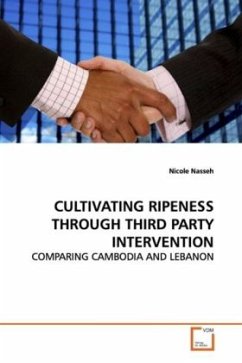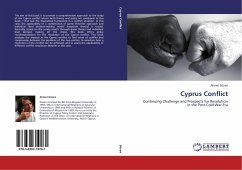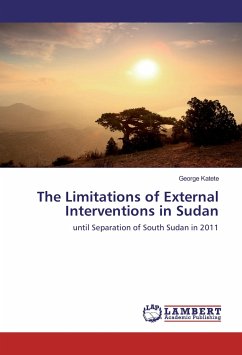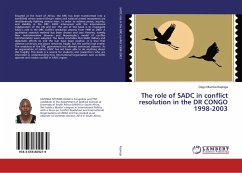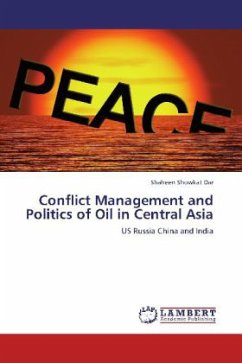Time ultimately resolves conflict, but time needs
some help. Instead of war parties waiting for
a hurting stalemate and disastrous deadlocks,
third parties could cultivate ripeness. This study
examines this concept in terms of a comparative
analysis of the intractable war situations in
Cambodia (1991) and Lebanon (1989), investigating
the capability of intervention strategies to
cultivate ripeness and make peace. The study
provides a theoretical review examining the concepts
of: conflict, mediation, and the theory of ripeness.
The study concludes that there were many ripe
moments in both conflicts and the role played by
mediators in facilitating the maturation of these
conflicts to make them ripe for mediation and
resolution was significant, regardless of the stage
of the conflict. Agreements were reached by a
process of cultivated ripeness induced through
intervention and the use of mediation techniques.
The end result was an enforced peace.
some help. Instead of war parties waiting for
a hurting stalemate and disastrous deadlocks,
third parties could cultivate ripeness. This study
examines this concept in terms of a comparative
analysis of the intractable war situations in
Cambodia (1991) and Lebanon (1989), investigating
the capability of intervention strategies to
cultivate ripeness and make peace. The study
provides a theoretical review examining the concepts
of: conflict, mediation, and the theory of ripeness.
The study concludes that there were many ripe
moments in both conflicts and the role played by
mediators in facilitating the maturation of these
conflicts to make them ripe for mediation and
resolution was significant, regardless of the stage
of the conflict. Agreements were reached by a
process of cultivated ripeness induced through
intervention and the use of mediation techniques.
The end result was an enforced peace.

